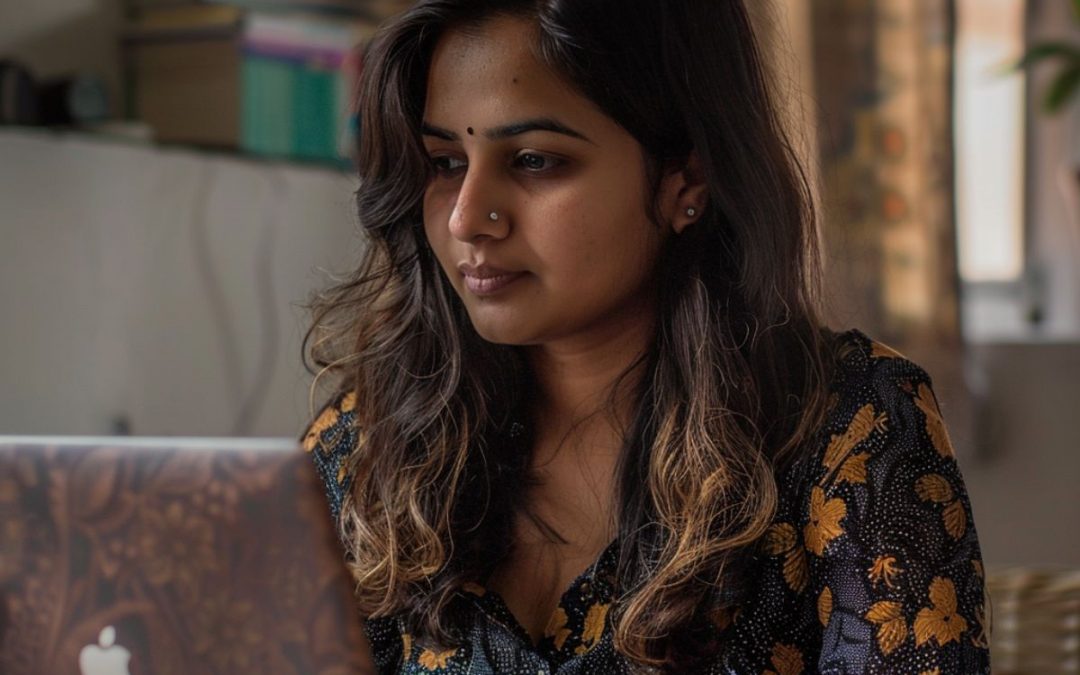“There is no tool for development more effective than the empowerment of women.” – Kofi Annan
Imagine a world where every woman, regardless of her geographical location, has access to the same opportunities for education, skill development, and economic independence. In the remote corners of rural India, this vision is steadily becoming a reality, driven by the power of digital connectivity and online resources. These tools are not just bridging the gap between urban and rural, but are also catalyzing a profound social transformation. Women, once marginalized and constrained by traditional norms, are now harnessing the internet to uplift themselves and their communities. This blog delves into the various online resources available to women in rural India, showcasing how they are unlocking new avenues for empowerment and fostering holistic development.
1. Educational Platforms
a. National Institute of Open Schooling (NIOS): The NIOS offers a variety of courses that enable women to continue their education from the comfort of their homes. The platform provides flexible learning opportunities, covering subjects from basic literacy to advanced vocational courses.
b. SWAYAM: An initiative by the Government of India, SWAYAM offers free online courses on diverse subjects. It empowers women by providing them access to quality education and skill development programs, which are crucial for personal and professional growth.
2. Skill Development and Vocational Training
a. Pradhan Mantri Kaushal Vikas Yojana (PMKVY): PMKVY is a flagship program aimed at providing skill training to youth, including women, in rural areas. The scheme offers training in various trades, helping women to become self-reliant and economically independent.
b. eSkill India: eSkill India, a National Skill Development Corporation (NSDC) initiative, offers an extensive array of online courses tailored to the needs of rural women. The platform covers sectors like agriculture, healthcare, and handicrafts, enhancing their employability.
3. Entrepreneurial Support
a. Udyogini: Udyogini focuses on empowering women through entrepreneurship. Their online resources provide training, mentorship, and financial literacy programs to help women start and manage their own businesses.
b. Mahila E-Haat: An initiative by the Ministry of Women and Child Development, Mahila E-Haat is an online platform for women entrepreneurs. It allows women to showcase and sell their products, thereby reaching a broader market and increasing their income.
4. Healthcare and Wellness
a. Aarogya Setu: Aarogya Setu is a comprehensive health app that provides information on COVID-19, health tips, and medical assistance. It is a crucial resource for women in rural India, ensuring they have access to timely and accurate health information.
b. Poshan Abhiyaan: This initiative aims at improving nutritional outcomes for children, pregnant women, and lactating mothers. The Poshan Abhiyaan app provides valuable information on nutrition, health, and wellness, empowering women to make informed health decisions.
5. Mental Health Resources
a. Tele-MANAS (Tele Mental Health Assistance and Networking Across States): Tele-MANAS provides free tele-counseling services to address mental health issues. It offers support for stress, anxiety, depression, and other mental health concerns, making mental health care accessible to women.
b. YourDOST: YourDOST is an online emotional wellness platform that offers counseling and support. It helps women access professional mental health advice and support anonymously and conveniently.
6. Menstrual Health Resources
a. Menstrupedia: Menstrupedia is an online platform providing comprehensive information on menstrual health and hygiene. It offers educational content, guides, and resources to help rural women and girls manage their menstrual health effectively.
b. Saathi Pads: Saathi Pads offers affordable and eco-friendly sanitary pads. Their website provides educational resources on menstrual hygiene, helping women make informed choices about their menstrual health.
7. Financial Inclusion
a. Pradhan Mantri Jan Dhan Yojana (PMJDY): PMJDY aims to provide affordable financial services to everyone, including women in rural areas. It facilitates the opening of bank accounts, access to credit, insurance, and pensions, ensuring financial security and inclusion.
b. Self Help Groups (SHGs): Online resources and platforms like NABARD’s SHG-Bank Linkage Program support SHGs by providing financial literacy, training, and credit access. These groups are instrumental in fostering financial independence among rural women.
8. Agricultural Support
a. eNAM (National Agriculture Market): eNAM is an online trading platform for agricultural commodities. It connects farmers with buyers across India, ensuring better price discovery and fairer trade practices. Women farmers can benefit significantly from this platform.
b. Kisan Call Centers (KCC): KCC provides expert advice on agricultural practices, pest management, and crop cultivation. Rural women engaged in farming can access these services to improve their agricultural productivity and income.
9. Legal and Social Support
a. Women Helpline (181): The Women Helpline is a 24/7 service providing support to women facing violence and abuse. It offers legal advice, counseling, and emergency response, ensuring safety and protection for rural women.
b. Digital Saksharata Abhiyan (DISHA): DISHA aims to promote digital literacy among rural communities. By providing training on using digital devices and the internet, it empowers women to access online resources and services effectively.
The empowerment of women in rural India through online resources is a transformative force. These platforms and initiatives are breaking barriers, providing education, skill development, financial inclusion, healthcare, and legal support. As rural women harness these resources, they are not only uplifting themselves but also contributing to the overall development of their communities and the nation. Embracing these online tools and programs is a crucial step towards achieving gender equality and sustainable development in rural India.

